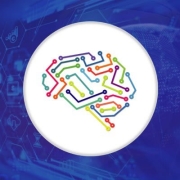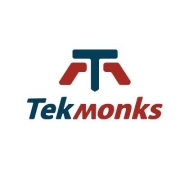AIOps uses artificial intelligence to enhance IT operations by automating processes and providing predictive insights. It integrates data across environments to streamline incident management and optimize performance.
As organizations contend with complex IT environments, AIOps offers a way to address these challenges by automating routine tasks, detecting anomalies, and generating deep insights. Leveraging machine learning, it processes vast amounts of data quickly, enhancing decision-making and reducing downtime. Many enterprises find value in AIOps solutions for their ability to integrate with existing systems and offer dashboards that improve visibility into IT operations.
What are the key features of AIOps?In financial services, AIOps assists with compliance and risk management by analyzing transactional data for irregular patterns. Healthcare utilizes it to predict equipment failures, ensuring seamless patient care. Retail benefits from enhanced logistics and inventory management by forecasting demand and optimizing supply chain operations.
AIOps helps organizations manage complex IT landscapes, enhance operational efficiency, and reduce costs. Its ability to deliver actionable insights supports strategic IT decision-making, ensuring more agile and responsive operations.
| Product | Market Share (%) |
|---|---|
| Dynatrace | 18.5% |
| Datadog | 16.1% |
| New Relic | 9.6% |
| Other | 55.8% |
















































In order for AIOps to be most effective, it should not exist in a vacuum. This process should be employed separately, but at the same time in conjunction with an organization’s already existing architecture. The AIOps solutions should be set up so that they can process all of the business’s IT data without being just another cog in the IT infrastructure. They should be an independent platform that is integrated with the existing system. This enables organizations to leverage all of their artificial intelligence capabilities to the fullest.
An organization looking to maximize the benefits that they gain through the implementation of an AIOps solution will want to diversify the needs that it serves. Instead of focusing on one or two highly specific areas of need, users will want to target many different functions. When organizations do this, they are able to address many more of the potential issues that can confront modern IT departments than if they were to limit the scope of their AIOps reach.
DevOps are the set of practices that integrate software development and IT practice teams and tools. AIOps are tools that might be utilized by organizations that deploy DevOps practices.
AIOps solutions are solutions that combine various types of AI technologies to enhance and improve the way that organizations run their IT operations.
AIOps improves IT operations efficiency by leveraging artificial intelligence to automate routine tasks and enhance decision-making. By analyzing large datasets in real-time, AIOps platforms identify patterns and anomalies, which enables you to proactively address potential issues before they impact your operations. This reduces downtime and allows your IT team to focus on strategic tasks, optimizing resources and costs.
What are the key capabilities to look for in an AIOps solution?When evaluating AIOps solutions, it's crucial to consider features like machine learning-based data ingestion, anomaly detection, correlation of alerts, and automation of incident responses. The ability to integrate with existing toolsets, provide a unified view of your IT environment, and deliver predictive insights are also important. These capabilities ensure that the AIOps solution effectively enhances your operational processes and scales with your evolving needs.
Can AIOps help in reducing the noise from IT alerts?Yes, AIOps is designed to reduce the noise from IT alerts by intelligently correlating related events and filtering out false positives. By utilizing advanced algorithms, AIOps platforms analyze data from multiple sources to distinguish between genuine alerts and noise. This reduces alert fatigue and ensures your team focuses on alerts that truly require attention, improving response times and operational efficiency.
How is AIOps different from traditional IT management tools?AIOps differs from traditional IT management tools by incorporating AI-driven analytics and automation, which traditional tools lack. While traditional tools often focus on reactive measures, AIOps offers predictive insights, allowing you to prevent issues before they occur. It also automates routine tasks and provides comprehensive visibility across your IT landscape, enhancing your ability to manage complex environments effectively.
What role does AIOps play in digital transformation?AIOps plays a vital role in digital transformation by enabling organizations to manage and optimize complex and dynamic IT infrastructures. With its capabilities for automation, predictive analysis, and real-time monitoring, AIOps supports the agility and scalability required in digital transformation initiatives. By doing so, it helps you deliver a better customer experience and fosters innovation and growth in a competitive digital landscape.